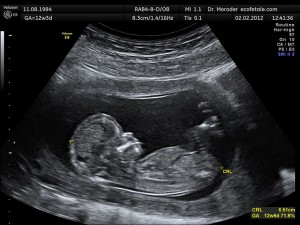 Montgomery, Alabama — The Supreme Court of Alabama issued a ruling this week concluding that the definition of the word “child” includes the unborn.
Montgomery, Alabama — The Supreme Court of Alabama issued a ruling this week concluding that the definition of the word “child” includes the unborn.
While the case was not related to abortion, it did involve the central question of whether preborn babies could be protected under the law as children. The issue before the bench was a criminal matter where two women had been prosecuted for using illegal drugs while pregnant. Alabama state law prohibits exposing children to controlled substances, which is considered child endangerment.
In 2000, Hope Ankrom and her newborn son tested positive for cocaine following his birth. She was put on probation for a year. In 2008, Amanda Kimbrough’s newborn son died less than 20 minutes after being born due to “acute methamphetamine intoxication.” She was sentenced to 10 years imprisonment.
The question at hand was whether the law applied to the women since their children were yet unborn at the time that they were exposed to the narcotics. The Alabama Supreme Court concluded that it did.
“The plain meaning of the word ‘child’ in the chemical endangerment statute includes unborn children,” the unanimous ruling affirmed.
It then proceeded to outline that most case law recognizes the unborn as being protected under the law as persons.
“The decision of this Court today is in keeping with the widespread legal recognition that unborn children are persons with rights that should be protected by law,” the court ruled. “Furthermore, the decision in the present cases is consistent with the Declaration of Rights in the Alabama Constitution, which states that ‘all men are equally free and independent; that they are endowed by their Creator with certain inalienable rights; that among these are life, liberty and the pursuit of happiness.’”
It asserted that the only court that needs to catch up with this conclusion is the United States Supreme Court.
“Today, the only major area in which unborn children are denied legal protection is abortion, and that denial is only because of the dictates of Roe,” the panel wrote.
Following its release, Alabama Attorney General Luther Strange applauded the decision.
“The Court has ratified our argument that the public policy of our state is to protect life, both born and unborn,” he said. “It is a tremendous victory that the Alabama Supreme Court has affirmed the value of all life, including those of unborn children whose lives are among the most vulnerable of all.”
Mat Staver of Liberty Council, a branch of Liberty University in Lynchburg, Virginia, was also pleased with the ruling. His organization had filed an amicus brief in the case.
“The U.S. Supreme Court’s abortion cases are an aberration to law and stand on an island by themselves, and that island will one day disappear,” he commented in a statement. “In personal injury, criminal, and wills and estate law, the trend has been to recognize the unborn child as a human with legal protections, not merely a ‘potential’ human being.”
In deciding Roe v. Wade, the U.S. Supreme Court remarked that if it could be established that the unborn are indeed persons, abortion would come to an end.
“If this suggestion of personhood is established, the appellant’s case, of course, collapses, for the fetus’ right to life would then be guaranteed specifically by the [Fourteenth] Amendment,” the 1973 decision outlined.
Become a Christian News Network Supporter...


